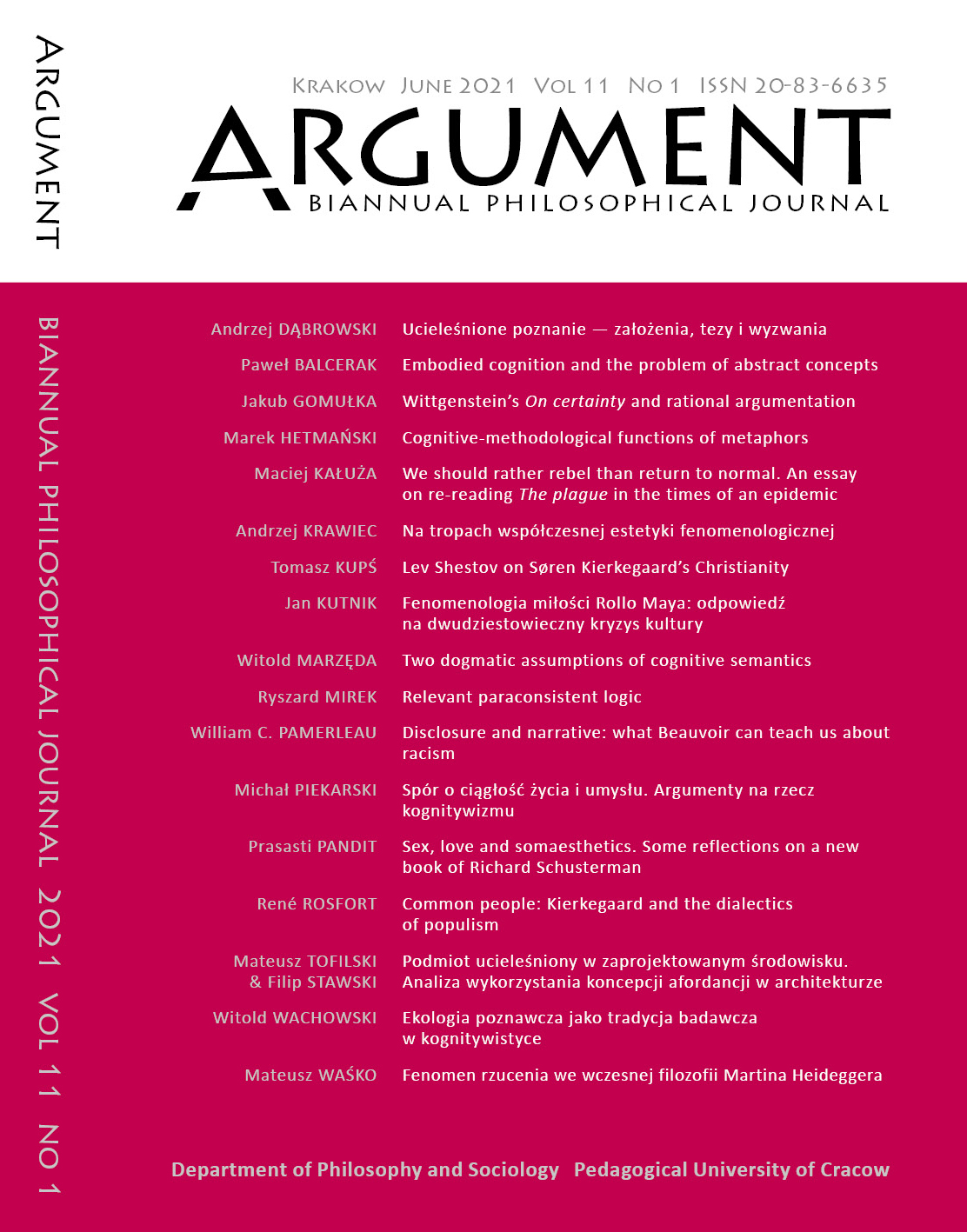Disclosure and narrative: what Beauvoir can teach us about racism
Keywords:
Simone de Beauvoir; racism; oppression; narrative identity; existentialism; disclosureAbstract
In The ethics of ambiguity, Simone de Beauvoir provides a powerful analysis of how we make our lives meaningful by disclosing the world. There are strong similarities between this account and theories of narrative identity: both describe how we select, interpret, and assess value for the events in our lives. Reading Beauvoir’s existentialist work through the lens of narrative identity allows us to better appreciate the social dimension of disclosure, however, since social narratives play a vital role in constructing our identity. For example, we find that our identities are partly assembled from life-scripts provided from our culture, which may define social groups in negative and rigid terms. This approach, then, allows us to understand the subtleties of racism and similar forms of oppression. Our ability to disclose a meaningful life is compromised by the imposition of restrictive and harmful narratives or by the refusal of others to recognize our chosen identities. The approach also offers ways to remedy these forms of oppression. In particular, it suggests the need to listen to the narratives of oppressed groups and think critically about how our own narratives impose or deny meanings.


